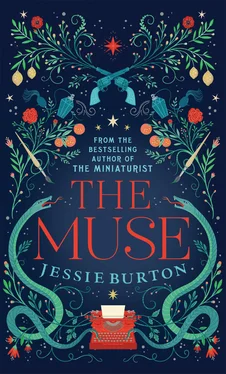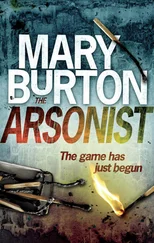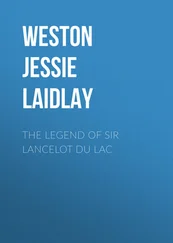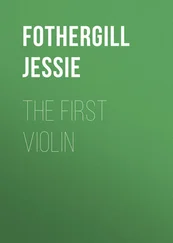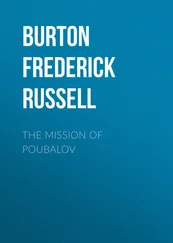‘ Are you a communist?’ Harold asked.
‘No. I am a member of the Republican Union party. And the poverty in our region is visible, it is not in my imagination. Mud huts, ten or eleven children inside them, men asleep on the fields.’
‘Isaac—’ said Teresa, but he interrupted her.
‘It is not just the poor — small farmers, they live on the land, they improve it for the owners — and then they are charged a high rent because they have made the land so productive, that they can no longer afford it. Their labour counts for nothing—’
‘You should be careful when you talk about “tyranny”, Mr Robles,’ Harold said. ‘If you insist on being a revolutionary, you will make the people with means to support you fly to the arms of a fascist.’
Isaac lowered his eyes. ‘But the people with the means to support us will never support us. I believe there is a way to universal happiness.’
‘The coercive redistribution of wealth,’ said Harold, looking grim.
‘Yes, that will do it. The people—’
‘Nothing destroys a country’s sense of balance more than the word coercive , Mr Robles. But look,’ he beamed, ‘we are destroying your sister’s lunch.’
Teresa stared at her brother. Olive thought of the thin wraiths they’d seen in the fields on their way here, stopping their work to stare at the car like it was a vehicle from a land of fantasy. ‘Mr Robles is right,’ she said. ‘I saw it.’
‘Oh, not you too, Liv,’ said Harold. ‘Not after all those bloody school fees.’
Olive looked to Isaac, and he smiled.
*
Late that night, after Isaac and Teresa had left, with promises to return in a couple of days with firewood, Olive went up to her bedroom in the attic and locked the door. Union, onion ; this brother and sister had come with their words and their seeds and Olive had never seen their like. Had she and her parents let them in, or had they simply entered, sensing a weakness in the fortifications? No one was like this in Mayfair, or Vienna; you left calling cards, not chicken carcasses. You spoke of the poor with pity, not anger. You did not plough your own land.
Blood alive, head singing from the way Isaac had looked at her, Olive grasped her easel, pulling open its three legs and fastening them tight. She found the wooden panel she had taken from the outhouse, and placed it on the easel. She opened her window to let in the moon, lit the oil lanterns and switched on the electric light beside her bed. She knelt before her travelling trunk like a pilgrim at an altar, and ran her fingers over the paint tubes hidden under the cottons. As she pulled them out, Olive felt a familiar connection, as if her heart was slotting into place, a moment to breathe. Not one of her colours had burst in transit, all her powders intact, the sticks of pastels not cracked in half. They had always been loyal to her, when everything else was falling out of place.
Moths hurled themselves at the bulbs as she worked, but she paid no mind. For the first time in a long time, all else was eclipsed by a purer sense of purpose and the image that was emerging on the old wooden board. It was a view from the bottom of the orchard, in exaggerated colours, the finca behind it, its peeled red paintwork on every window. It had its feet in the earth, but the sky above was enormous and swirling, with a hint of angelic, silver-grey. The scale of the house made it look smaller in the painting, the trees in the foreground laden with such fruit that in reality was not there.
You could just about call it figurative, but it was not realistic. It had a new form of surreality Olive had never executed before. For all its grounded colours on the fields — ochres and grasshopper-greens, the folkloric tenderness of russet furrows and mustard browns — there was something other-worldly about the scene. The sky was a boon of promise. The fields were a cornucopia of cereal crops and apples, olives and oranges. The orchard was so lush you might call it a jungle, and the empty fountain had turned into a living spring, the satyr’s canton now gushing full of water. The finca rose up like a welcoming palace, her father’s house with many mansions, its windows huge and open to her gaze. The brush strokes were loose, and colour dominated technical accuracy.
Olive fell asleep beside it at four in the morning. The next day, she stood before the painting as the sun cracked low along the sky beyond her window. She never knew she was capable of such work. She had made, for the first time, a picture of such movement and excess and fecundity that she felt almost shocked. It was a stubborn ideal; a paradise on earth, and the irony was it had only come from this place, this lonely part of Spain to which her parents had dragged her.
Stiffly, Olive moved to the trunk where the letter from the art school was hidden. She pulled it out, read it, smoothed it, folded it neatly, and kissed it, placing it back at the bottom of the trunk, buried deep and out of sight.
‘Last year,’ Isaac said, in English, ‘I meet a man waiting for my train at Barcelona station. A journalist. We talk. He tells me, “It is coming. It has happened before and it is going to happen again.” ’
‘What’s happened before?’ Olive asked. She was standing with Isaac in the orchard, helping gather the chopped wood as he sliced it in half with his axe. She turned briefly towards the house, and saw a shadow move behind the lace curtains of her mother’s room. To hell with her; this was Olive’s time with him. Sarah always wanted to be the centre of attention, and was very good at it, but Olive loved these stolen moments in Isaac’s company.
Out of the corner of her eye she watched his shirt lift, and saw the flash of dark brown flesh, a trail of hair leading away. She felt such pleasure when he handed her the split pieces of wood, as if he were offering her a bouquet. From a decade of devouring novels, Olive knew that charming men were deadly. Their story had been played down the centuries, unharmed through the pages, whilst girls were blamed and girls were lost, or girls were garlanded, mute as statues. Be Vigilant and Prize Your Virginity was a subtitle many of these stories could have taken, most of them written by men. Olive knew all this and she didn’t care. She didn’t give a damn.
He had been coming to the house with less regularity than Teresa, partly because of his job in Malaga, and partly because he did not have as much of an excuse. It pleased Olive so much to see that their piles of firewood were probably the highest for several miles. If he wanted to tell her about the state of his country, she was more than happy to listen.
He had not noticed her new hairstyle, the gobs of her mother’s pomade she had applied, to try and make it smooth and slick. These were not the sort of things a serious-minded man might notice, of course, Olive supposed. Not when his country was in a state of unrest. Not when he was thinking of the people. She decided that to make the most of her time with him, it would pay to be more politically aware.
‘What happened before? Chapel tombs smashed open, the corpses of nuns on the ground,’ said Isaac. ‘Houses like this one, robbed.’ They both turned back to look at the finca, and the figure at the curtains dipped rapidly away. ‘They say a priest was taken from his sacristy and left hanging on a tree, found next morning with his balls in his mouth.’
‘Isaac!’ Olive cringed. The word balls made her nervous, and she felt childish.
‘The newspapers make it seem worse than it is — but they never ask the question as to why the looting happens in the first place. So, this journalist.’
‘Yes?’
‘He starts talking to me about a polar bear.’
Читать дальше
